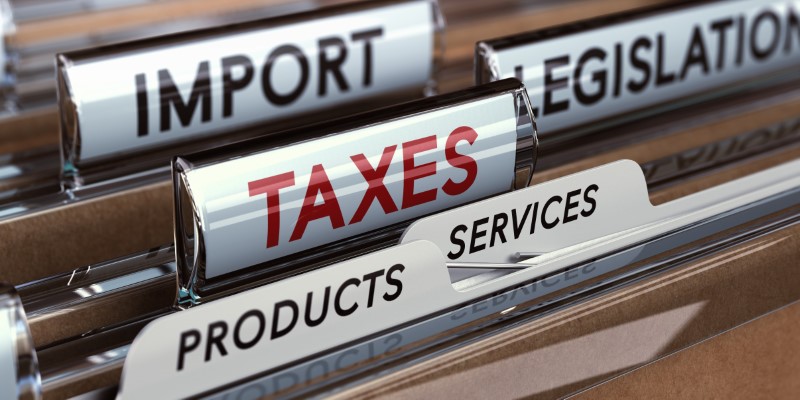
Are you a babysitter wondering about your tax obligations? Or perhaps you're a parent considering hiring a babysitter and want to understand the financial implications. Whatever your situation, the question of whether babysitters must report their income on taxes is common. Let's delve into this topic and clear up any confusion.
Babysitting can be rewarding, offering flexibility and the chance to impact children's lives positively. However, like any source of income, it's essential to understand your tax responsibilities. In this guide, we'll explore the ins and outs of babysitters, income, and taxes to help you navigate this aspect of your financial life. So, without any further ado, lets begin exploring!
Understanding Babysitters and Their Income
Babysitters play a vital role in supporting families by offering reliable childcare services. Whether for a much-needed date night or regular assistance during work hours, babysitters provide supervision, companionship, and care for children of various ages. Their responsibilities extend beyond mere supervision; they often engage children in enriching activities, assist with homework, and ensure their safety and well-being.
Babysitters can operate independently, working directly with families to arrange schedules and rates that suit both parties. Alternatively, they may find employment through agencies that connect them with families needing childcare services. Rates can vary significantly depending on location, experience, and the number of children under their care. Some babysitters offer additional services, such as pet sitting or tutoring, expanding their earning potential and catering to diverse family needs.
Do Babysitters Need to Report Their Income?
Babysitters are indeed required to report their income on taxes in most circumstances. This is because babysitting income falls under the category of taxable earnings, much like wages from a conventional job. It doesn't matter if you babysit occasionally for extra cash or if it's a regular source of income; any money earned should be disclosed to the IRS come tax time.
Essentially, the IRS views babysitting as a form of self-employment, meaning you run your own small business. This means you're responsible for reporting your earnings accurately and paying the appropriate taxes on them. It's crucial to understand that failing to report babysitting income can result in penalties and interest charges from the IRS. Whether supervising neighborhood children or managing a professional babysitting business, it's crucial to stay vigilant about your tax responsibilities to prevent future complications.
Tax Obligations for Babysitters
As a babysitter, you are considered self-employed for tax purposes. This means you are responsible for reporting and paying taxes on your income. Here are some key points to keep in mind regarding tax obligations for babysitters:
Filing Requirements:
If you earn more than a certain threshold, you are required to file a tax return. The threshold can vary depending on your filing status and age. Even if you earn below the threshold, filing a return to report your income accurately is still a good idea.
Self-Employment Tax:
As a self-employed individual, you're responsible for paying self-employment tax, encompassing Social Security and Medicare contributions. This tax, distinct from income tax, requires you to allocate a portion of your earnings for these vital programs. Setting aside funds regularly ensures you can fulfill these obligations without financial strain, safeguarding your future benefits and complying with tax regulations.
Quarterly Estimated Taxes:
Since babysitters don't have taxes withheld from their pay like employees, they are responsible for making quarterly estimated tax payments to the IRS. These payments help ensure you pay your taxes throughout the year rather than in one lump sum at tax time.
Tax Deductions:
As a self-employed individual, you may be eligible for various tax deductions for your babysitting business. This can include expenses such as supplies, transportation, and advertising. Maintaining thorough records of your expenses can optimize your deductions and reduce your tax liability.

Reporting Babysitting Income
When it comes to reporting your babysitting income, accuracy is critical. Here's what you need to do to fulfill your tax obligations:
Keep Records:
To ensure accurate reporting and maximize deductions, diligently track all babysitting income and expenses. Keep detailed records of invoices, receipts for supplies, and mileage logs for transportation. Organizing these records meticulously simplifies tax filing, clearly showing your financial transactions and potential deductions.
Use the Correct Forms:
You must file Schedule C (Form 1040) and your tax return as a self-employed individual. This crucial document is designed to report income and deduct expenses related to your babysitting business. It provides a detailed breakdown of your financial activities, ensuring accurate tax reporting.
Report All Income:
It's crucial to meticulously record and report all income earned from babysitting, regardless of whether payments are made in cash. Refrain from reporting this income to prevent individuals from potential penalties and interest charges levied by the IRS. Full compliance with tax reporting requirements ensures financial integrity and minimizes the risk of facing legal repercussions.
Be Honest:
Being truthful when reporting income and expenses is paramount. Attempting to hide income or exaggerate deductions can lead to serious repercussions, including audits and legal consequences. Honesty ensures compliance with tax regulations and fosters trust and integrity in financial dealings. Maintaining transparency is essential to safeguarding your financial well-being and reputation.

Conclusion:
Babysitters must report their income on taxes to comply with IRS regulations and avoid penalties. To ensure financial integrity, they must understand tax obligations, maintain accurate records, and consult tax professionals if needed. Being informed about tax responsibilities is crucial, whether seasoned or new to the profession.
By following the guidelines outlined here, navigating the world of babysitting and taxes becomes manageable. Armed with this knowledge, you can confidently respond to inquiries about babysitters' tax obligations, securing your financial standing. Hope you found this comprehensive info worth reading. Stay tuned for more of such interesting yet helpful guides.




